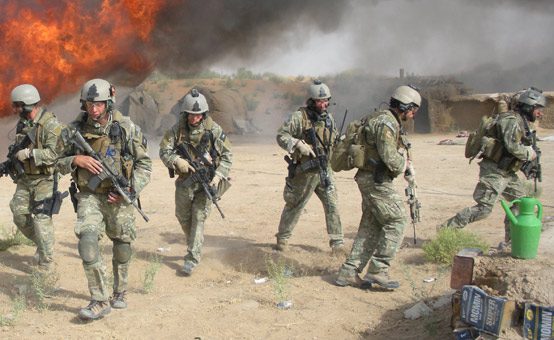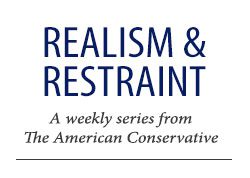After 16 Years of War, Afghanistan Still World’s Heroin Supplier

On Monday, President Donald Trump revealed many substantive changes to U.S. strategy in Afghanistan, but the longest war in U.S. history cannot be won without confronting narco-terrorism. After 16 years and billions of U.S. dollars spent, Afghanistan now supplies more than 75 percent of the world’s heroin and the region hosts the highest concentration of terrorist groups. Not only that, Afghanistan serves as a primary hub where the world’s largest drug trafficking groups directly support Islamic terrorism. There will be none of Trump’s promise of victory without confronting these dark truths.
 Narco-terrorism describes the nexus between drug traffickers and terrorists. It manifests itself in four basic forms: 1) drug traffickers who engage in terrorist activity to further their drug trade; 2) terrorists who sell drugs to finance their operations; 3) organizations with equal interests in drug trafficking and terrorism; and 4) drug traffickers and terrorists who mutually support each other.
Narco-terrorism describes the nexus between drug traffickers and terrorists. It manifests itself in four basic forms: 1) drug traffickers who engage in terrorist activity to further their drug trade; 2) terrorists who sell drugs to finance their operations; 3) organizations with equal interests in drug trafficking and terrorism; and 4) drug traffickers and terrorists who mutually support each other.
Afghanistan’s Nangarhar province has become the epicenter of this black market. Here, there is a strong symbiotic relationship between heroin traffickers and terrorist groups like the Haqqani network and the Taliban. Drug traffickers give a percentage of their drug proceeds to the Taliban as a form of zakat, an obligatory donation required as one of the five pillars of Islam. Taliban commanders also ask heroin traffickers to purchase weapons and supplies for them, and allow their fighters to stage at drug labs before attacks.
In exchange for this support, the Taliban agrees to protect heroin laboratories from the Afghan police and military. The Taliban intimidate or murder Afghan nationals who cooperate with authorities and wage active jihad against Afghanistan’s government, creating a lawless environment in which both drug trafficking and terrorism thrive.
According to the Drug Enforcement Administration (DEA), approximately 37 percent of all designated terrorist groups are linked to illicit narcotics trafficking. In recent years, the DEA and Afghan police have targeted top-level narco-terrorists using relatively new federal legislation. In 2006, the United States enacted a federal narco-terrorism law, under 21 United States Code 960(a). This legislation makes it a crime to engage in federally prohibited drug trafficking, with the intent to provide anything of pecuniary value to a terrorist organization or to those engaged in terrorist activities.
The first person ever convicted under this new law was Khan Mohammed, an Afghan national from Nangarhar province who was both a heroin trafficker and a member of the Afghan Taliban. He was recorded saying, “May God eliminate them (infidels) right now, and we will eliminate them too. Whether it is by opium or by shooting, this is our common goal.” Mohammed was arrested in 2006, after a joint investigation by the DEA and Afghan Counter Narcotics Police. He was brought to the United States and convicted in the U.S. District Court for the District of Columbia on both drug and narco-terrorism charges. He received two life sentences.
Haji Bagcho, the world’s most prolific drug trafficker, based many of his heroin labs in Nangarhar province. His drug trafficking organization was responsible for approximately 20 percent of the world’s distribution, according to United Nations Office of Drugs and Crime (UNODC) estimates of worldwide heroin production. In one 12-month period, Haji Bagcho distributed over 123,000 kilograms of heroin, with a wholesale value over $261 million and a street value in the billions of dollars.
Haji Bagcho provided money and weapons to Taliban leadership, urging them to expel “infidels” from Afghanistan, and asked farmers to grow more opium “so we can make heroin to kill the infidels.” Haji Bagcho was convicted of drug and narco-terrorism charges in the U.S. District Court for the District of Columbia, sentenced to serve life in prison, and ordered to forfeit over $254 million. While the narco-terrorism charge was later vacated, Haji Bagcho remains in jail for life on drug charges.
According to a 2016 report by the UNODC, Afghanistan has approximately two-thirds of the world’s arable land dedicated to cultivating poppies, the plant used to produce opiates. Afghanistan processed 77 percent the world’s heroin, according to a 2015 UNODC report, and Nangarhar is one of Afghanistan’s top heroin-producing provinces. A 2017 UNODC report, claims approximately half of the Afghan Taliban’s income may come from narcotics.
Across the treacherous Hindu Kush mountains in Nangarhar province, farmers grow poppies, from which they extract opium to sell to brokers. Brokers then sell the opium to drug production groups, who run clandestine laboratories in the mountains. There, the opium is converted into morphine and heroin. Traffickers refer to the most refined heroin as “spin mal.” This high-purity, injectable heroin is sold around the world, including in the United States.
Needless to say, there are high levels of corruption among the district police, border police, and politicians in this province. Many Afghan officials have contacts in the Afghan Taliban, Pakistani Taliban, and the Haqqani network. This public corruption contributes to the flourishing of both terrorists and traffickers.
For years, coalition military forces have engaged terrorists throughout the area—Tora Bora, where Osama Bin Laden took refuge after 9/11, is located in the Spin Ghar mountain range in southern Nangarhar. In April, the United States dropped the “mother of all bombs,” on an Islamic State tunnel complex in Nangarhar. Still, the issues persist.
President Trump’s new strategy in South Asia should unleash the full might of the U.S. military against terrorist groups there, but it has to target the narco-terrorism. Any military effort to defeat the Islamic State, Haqqani network, Taliban and other terrorist groups will only succeed if the U.S. destroys the narco-terrorists based in Nangarhar province and throughout the region. How that is done effectively, after more than a decade of trying, remains to be seen.
Jeffrey James Higgins is a retired DEA supervisory special agent with 25 years of law enforcement experience and an expert in narco-terrorism. His writing can be found at JeffreyJamesHiggins.com.
Comments